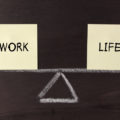Last updated on August 21st, 2018
Do you find today’s world stressful?
I haven’t met anyone who has answered that question with a ‘no.’
As an executive coach and workplace psychologist, I meet many people who are looking for strategies to increase their capacity to bounce back from stress and to become more resilient. Resilience is the capacity to lead a more fulfilling and contented life, no matter what may be thrown at us.
At the annual conference of the New York Medical Group Management Association last week, I shared strategies for increasing resilience that are rooted in science. In the past few years, workshops on resilience are becoming more and more popular as the pace and stresses in life increase for people in many industries, including healthcare. For those who have not been able to attend a workshop yet, I’d like to share a few key points.
We can rewire our brain!
What’s important to know is that there are practical actions we can develop into habits that truly help to rewire the brain! Such habits not only help us cope better in a stressful situation, but they also help us to improve our baseline capacity for staying calm, making effective decisions and feeling happy, even under challenging circumstances.
As Jon Kabat-Zinn, a mindfulness meditation teacher and researcher from Massachusetts General Hospital, famously said, “You can’t stop the waves, but you can learn to surf!” Often we are unable to control the stressors that come our way, but we can hone our capacity to bounce back from the unexpected curve balls life throws at us and to stay connected with the people and activities that give us meaning, joy and purpose. Who wouldn’t want to do that?
Developing these skills takes time, but is worth it
Surprisingly not everyone makes the effort to develop these crucial life skills.Sometimes we make excuses for why we don’t develop “emotional muscles.” We rationalize that the situation we are in is unfair or that the individuals causing us stress (such as a demanding boss or co-worker) should change first. While this may be so, it does us no good to suffer or to be a martyr, even when we are right! Plus, when we are happier and more productive, we have a better chance of changing the things that may be wrong or unfair in our environment.
Tools to build your resilience
The good news is that there is help to build your resilience. As I mention in my workshops, there are many evidenced-based tools and strategies to help you become more resilient and less vulnerable to the impacts of stress. To learn about the most valuable resilience strategies, read my recent Forbes post “Resilience is a Competitive Advantage” with tips for developing resilience.
We will always have some tools in our toolbox that come more naturally to us and that we are most comfortable using. That’s fine–use the tools you like best most often, but consider practicing with a couple of new tools to improve your capacity for resilience. You will be happy you did!







0 Comments